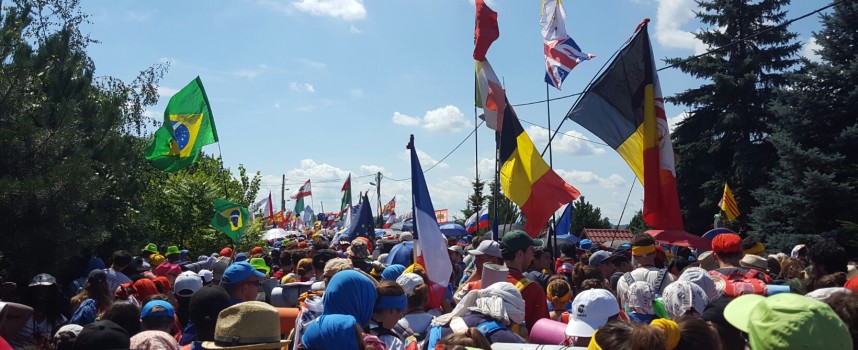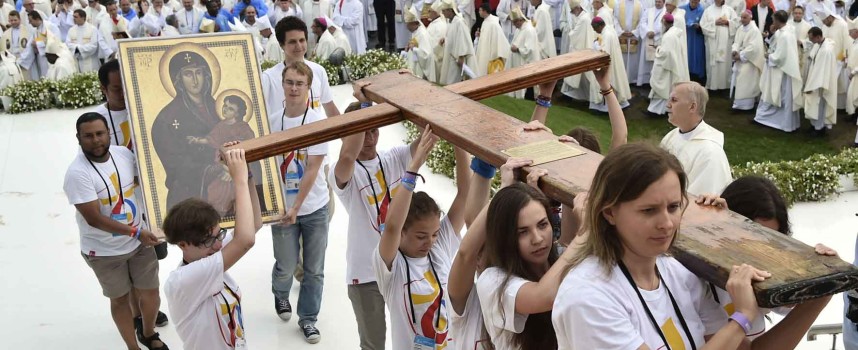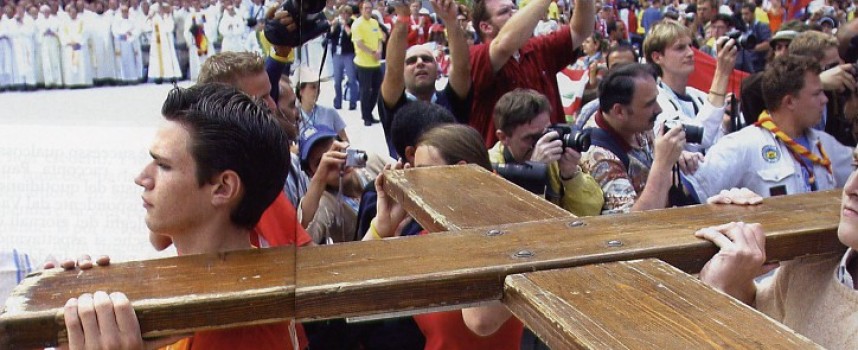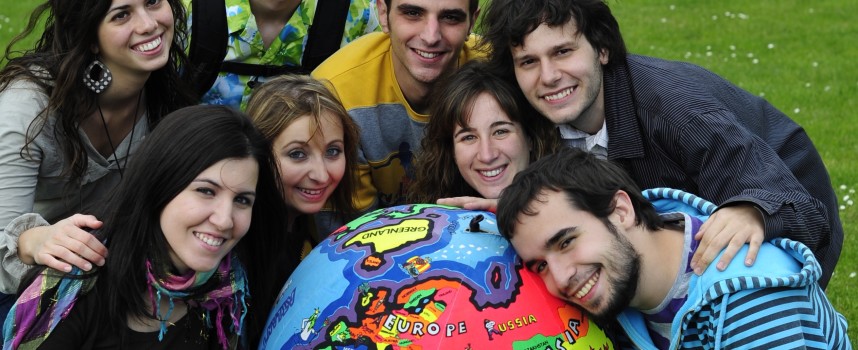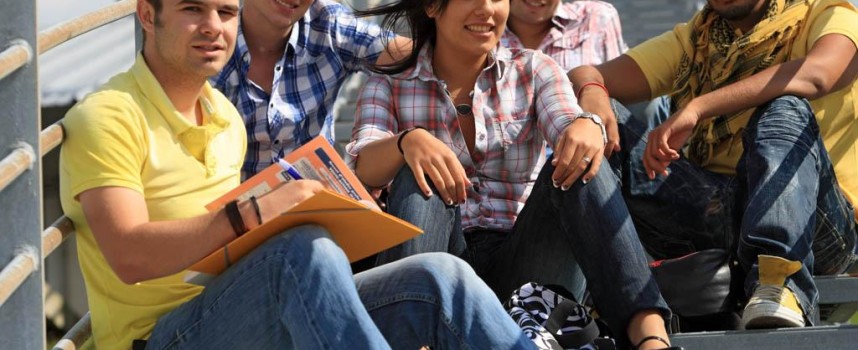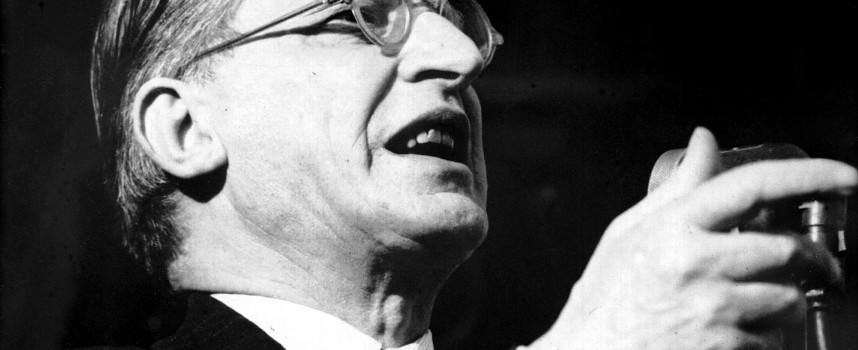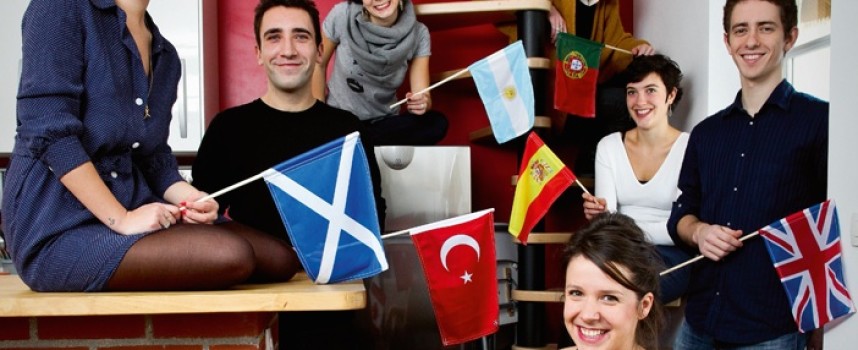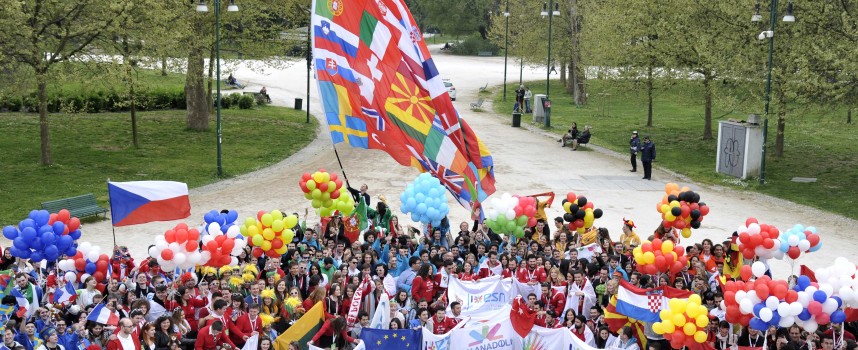Youth and Europe
EN | IT – What message will young people in Europe bring to Europe after the experience of World Youth Day in Krakow? To what extent will this global event leave traces? What consequences will the words of Pope Francis have specifically in the European context ransacked in several places and for different reasons? At the resumption of their commitments to research and work what extra soul will young people bring to the society, culture and politics of individual European countries, of the European Union and more broadly of Europe? Who will accompany them?
EN | IT – “The future belongs to the young. But beware, young people with two qualities: young people with wings and young people with roots”. With these words Pope Francis on the 4th September, 2014 addressed the participants of the III Congress of “Scholas occurrentes”, the “World Network of schools for meeting,” which brings together educational realities of different cultures and religions and that was founded at the request of the Pope himself. And these same words come to mind looking at the flood of young people from all around the world arrived in Krakow for the XXXI World Youth Day.
EN | IT | FR | DE – CCEE Congress on university pastoral work. How is it possible to help university students to discover and live the fullness of Gospel life, to be and become responsible in life? These were the issues discussed by more than fifty delegates responsible for university pastoral work for the European Bishops’ Conferences along with groups of students from all over Poland, meeting in Lødż (Poland) to reflect on and exchange views about the theme “Being and becoming responsible in life”. The four-day meeting (16-19 April) was organised by the ‘University’ section of CCEE’s ‘Catechesis, school, and university’ Commission.
EN | IT – “Together on the Roads of Europe”. This is the theme of the European Conference of Youth Ministry, organized by the Pontifical Council for the Laity and the Council of Catholic Bishops’ Conferences of Europe (CCEE) in Rome last December. European young people, along with bishops, pastoral leaders, and representatives of Church associations and movements from all over Europe, made reflections on the meaning of the Old Continent today.
EN | IT – “Imagine that, just off Trafalgar Square, Place Vendôme, Times Square, Schwarzenbergplatz, or Piazza Venezia, there is a wall dividing into two parts London, Paris, New York, Vienna, or Rome. Imagine that the inhabitants of a part are prohibited from going into the other, and that the inhabitants of the other part are allowed to go to the opposite part only occasionally, provided they complete special formalities”. These were some thoughts about the Wall. 25 years ago the Berlin Wall finally fell, but are we sure that all the invisible walls in Europe have fallen along?
EN | IT – October is the month of the “awakening” of the Academic word: the month in which everything starts again for millions of students all over Europe. Three of those millions together with the “here we go again” will also say “let’s go away”: in October 3 million of European young students with their baggage of books, food, somatic traits, languages, traditions take the airplane for their Erasmus, to make “an experience abroad”.
EN | IT – De Gasperi was firmly convinced that for the United Europe not only a institutional architecture was needed but most of all an European “soul”. And this point is really actual in a european society in which the ideal of Europe is losing every day its meaning. De Gasperi in his idea of United States of Europe couldn’t help thinking about the young “Be yourself and be optimists” he used to repeat to the young generations. De Gasperi hoped that the new generations could be the regeneration of our society, starting from the idea of community, of common good and of construction of peace.
EN | IT – In the past, I would have wondered if it was worth going back home “only for the purpose of voting in the European elections”; this time, instead, I wondered if I was informed enough to vote knowingly in the European elections… There is a long way to go before we can truly live in Europe in the right state of mind, but certainly the Erasmus experience can make a tangible contribution to train young people in this direction!
EN | ES | IT – What do young people expect from Europe? For instance, we want to talk about all the possible topics, without taboos, censorship and reluctances. We would like to dialogue and negotiate for achieving great improvements not only to European youth, but also to all the others in the world, in order to have better future opportunities. We want to break all kind of frontier or limitation, temporal or spatial, physical, psychological political, economic, social or cultural or age limit. We want to go beyond…
EN | IT | FR – Erasmus is a program launched by the European Union in 1987 to enable young people from all over the continent to study one or two semesters of their college career in a foreign structure, without being charged tuition fees in the host country; in addition, each student who participates in the programme is guaranteed a monthly financial support to meet other expenses, such as rent.

